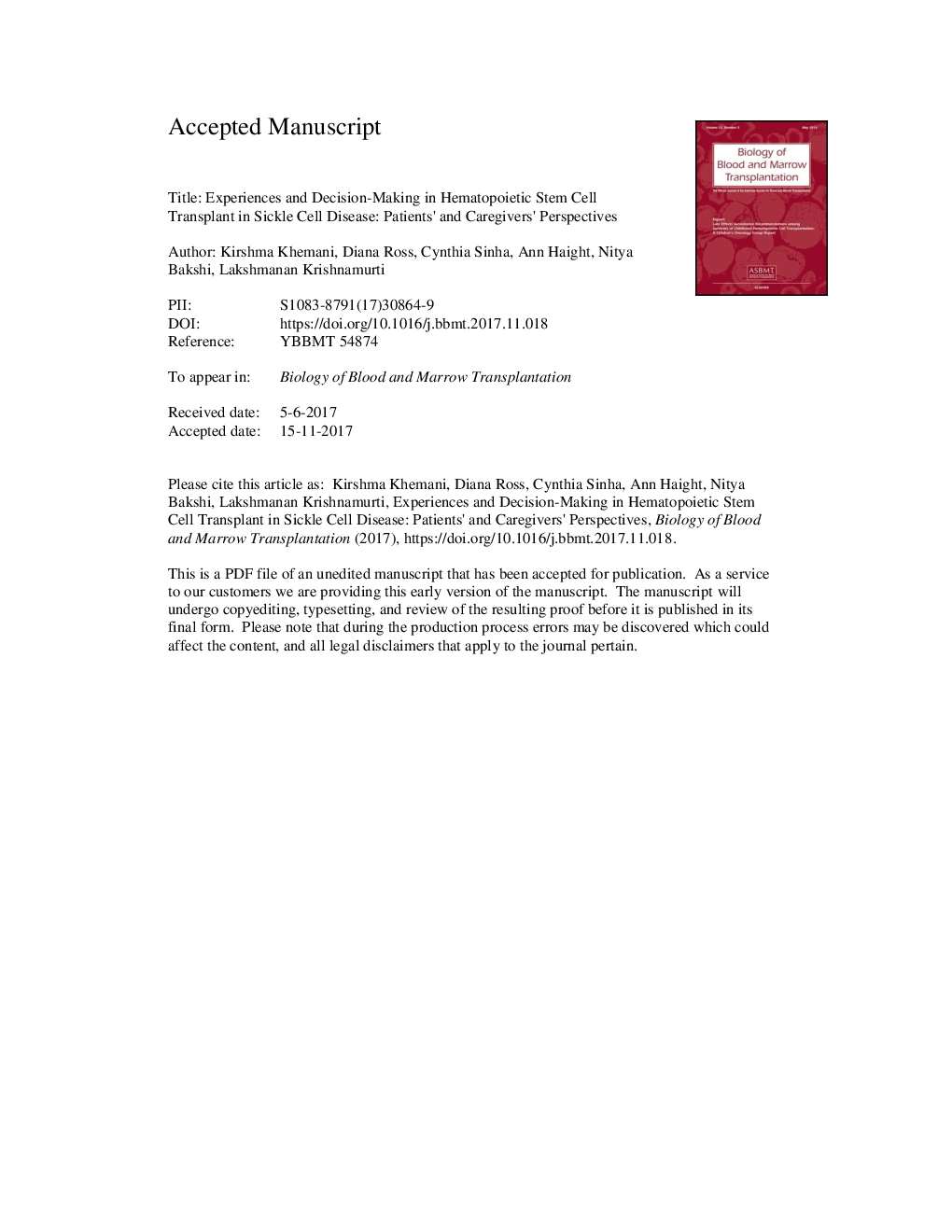| Article ID | Journal | Published Year | Pages | File Type |
|---|---|---|---|---|
| 8430014 | Biology of Blood and Marrow Transplantation | 2018 | 27 Pages |
Abstract
Sickle cell disease (SCD) is one of the most commonly inherited hemoglobin disorders that has a significant impact on quality of life, increased childhood morbidity, and premature mortality. Currently, hematopoietic stem cell transplant (HSCT) is the only treatment with a curative intent. The objective of this study was to determine patients' and caregivers' knowledge of HSCT, the factors influencing the decision to pursue HSCT, their experiences, and the impact of a successful HSCT on their daily living. At Children's Healthcare of Atlanta, we conducted a qualitative study using a semistructured interview guide of patient-caregiver dyads and 2 focus-group sessions of adult long-term survivors of HSCT to elicit key factors in decision making, their experiences with HSCT, and the impact of HSCT. Interviews and focus-group sessions were recorded and transcribed verbatim. Transcripts were coded and analyzed for emerging themes using NVivo 10.0. We enrolled 11 patient-caregiver dyads (nâ=â6, female patients; nâ=â10, mothers) in the qualitative interviews and 2 focus groups with 5 (nâ=â2, females) and 7 (nâ=â3, females) participants in each group, respectively. Our analysis revealed 3 prominent themes: (1) factors and concerns influencing HSCT decision making; (2) HSCT experiences; and (3) impact of HSCT on daily life. Participants reported that progression of disease-related complications and availability of a matched donor strongly influenced the decision to pursue HSCT. Although patients and caregivers had to deal with the arduous process of HSCT and transplant-related morbidities, participants were satisfied with their decision and expressed no decisional regrets. Decision making for HSCT for patients with SCD is a complex process. Understanding the key influential factors in decision making and the impact HSCT has on these patients and their families will generate crucial insights that can guide the care of future patients and research studies.
Keywords
Related Topics
Life Sciences
Biochemistry, Genetics and Molecular Biology
Cancer Research
Authors
Kirshma Khemani, Diana Ross, Cynthia Sinha, Ann Haight, Nitya Bakshi, Lakshmanan Krishnamurti,
